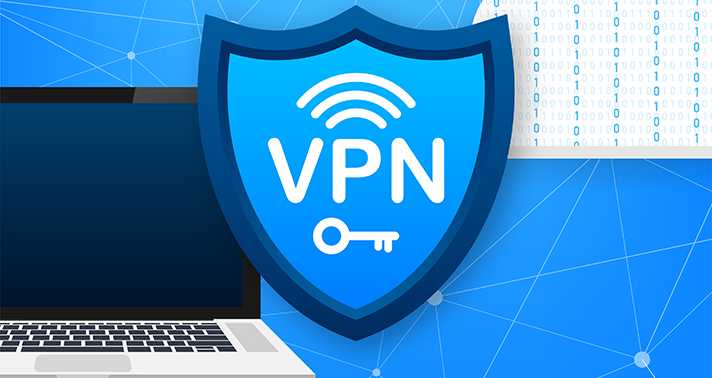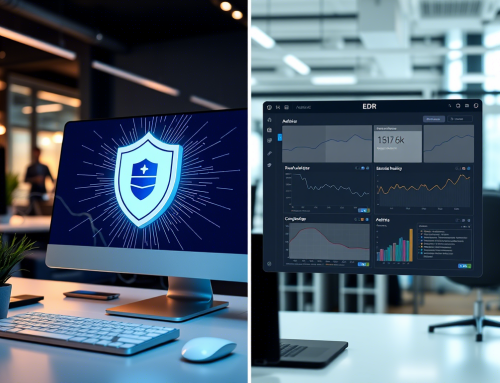Online privacy and security are more important than ever. You’ve probably heard of VPNs (Virtual Private Networks) as a tool to help protect your online activity, but what exactly is a VPN, and how does it work? Let’s break it down in a way that’s easy to understand.
What is a VPN?
A VPN, or Virtual Private Network, is a tool that protects your internet connection. It does this by masking your IP address—essentially your device’s identifier on the internet—and encrypting your data. Think of a VPN as a secure, private tunnel that connects your device to the internet. When you’re using a VPN, your online activity is shielded from prying eyes, whether those eyes belong to your Internet Service Provider (ISP), advertisers, or hackers.
How Does It Work?
Typically, when you connect to the internet, your data travels from your device to your ISP and then to the website or service you’re accessing. This means your ISP can see everything you’re doing online, and the website you’re visiting can see your IP address, which reveals your general location. This lack of privacy can be concerning, especially when you’re on public Wi-Fi networks, which are notoriously insecure.
When you use a VPN, your data is first encrypted (converted into unreadable code) before it leaves your device. It then travels through a secure tunnel to a VPN server, where it is decrypted and sent to its destination. The website you’re visiting sees the IP address of the VPN server, not your own. This process helps protect your identity and location, giving you a degree of anonymity online.
Why Use a VPN?
VPNs offer several benefits that make them essential for anyone concerned about their online privacy and security:
- Enhanced Privacy: A VPN hides your IP address and encrypts your data, making it much harder for anyone to track your online activity. This is particularly important in a world where data breaches and tracking are becoming more common.
- Security on Public Wi-Fi: Public Wi-Fi networks, like those in cafes or airports, are prime targets for hackers. A VPN secures your connection, making it nearly impossible for hackers to intercept your data.
- Access to Restricted Content: Many streaming services and websites restrict access based on your location. With a VPN, you can connect to a server in a different country, allowing you to access content that might otherwise be unavailable to you.
- Avoid ISP Throttling: Some ISPs intentionally slow down your internet connection based on your activity, such as streaming or torrenting. A VPN hides your activity from your ISP, preventing them from throttling your connection.
Understanding Advanced VPN Features
As you delve deeper into the world of VPNs, you’ll find that many providers offer advanced features that can enhance your online experience:
- Split Tunneling: This feature allows you to choose which apps use the VPN and which ones connect directly to the internet. For example, you might want your banking app to use the VPN while your streaming app bypasses it to maximize speed.
- Ad and Malware Blocking: Some VPNs offer built-in ad blockers that prevent unwanted ads and pop-ups. Additionally, advanced versions of these features can block trackers and even malicious websites before they can do any harm.
- Kill Switch: One of the most critical features of a VPN is the kill switch. If your VPN connection drops unexpectedly, the kill switch automatically disconnects your device from the internet. This ensures that your real IP address and data aren’t accidentally exposed.
Encryption and VPN Protocols
Encryption is at the heart of how VPNs protect your data. The two most common encryption algorithms used by VPNs are AES-256 and ChaCha20. Both are considered highly secure and are widely used in the industry.
- AES-256: This is a type of symmetric encryption, meaning the same key is used to encrypt and decrypt data. It’s known for its robustness and is used by governments and security agencies worldwide.
- ChaCha20: Another symmetric encryption method, ChaCha20 is known for its speed and efficiency. It’s particularly useful in situations where high performance is essential.
In addition to encryption, VPNs rely on protocols to establish secure connections. The most popular protocols today are WireGuard and OpenVPN.
- WireGuard: This is a newer protocol known for its simplicity, speed, and security. It’s becoming the standard for modern VPNs.
- OpenVPN: While older, OpenVPN is still widely used and respected for its reliability and flexibility. It allows users to choose between different transmission protocols, such as TCP (Transmission Control Protocol) and UDP (User Datagram Protocol), depending on their needs.
Choosing the Right VPN
With so many VPN providers available, choosing the right one can be challenging. Here are some key factors to consider:
- Reputation and Privacy Policy: Make sure the VPN provider has a solid reputation and a clear, transparent privacy policy. Some VPNs have been caught logging user data, which defeats the purpose of using one in the first place.
- Server Network: The more servers a VPN provider has, the better your chances of finding a fast, reliable connection. Look for providers with servers in the regions you’re most likely to connect to.
- Extra Features: Consider what additional features are important to you. Do you need split tunneling, ad-blocking, or a dedicated IP address? Some providers offer these features as standard, while others may charge extra.
- Value for Money: VPN prices can vary significantly, so it’s worth shopping around. Some providers offer discounts for long-term subscriptions, but make sure the service meets your needs before committing.
The Future of VPNs and Encryption
While current encryption methods used by VPNs are considered secure, the rise of quantum computing poses a potential threat. Quantum computers, with their ability to perform complex calculations much faster than traditional computers, could theoretically break today’s encryption algorithms in a fraction of the time. Although this technology is still in its early stages, it’s a good idea to stay informed about developments in post-quantum cryptography, which is being designed to resist quantum attacks.
Overcoming VPN Detection
Not everyone is thrilled with the idea of VPNs. Governments, corporations, and other entities often try to block VPN traffic to enforce censorship or maintain control over what can be accessed online. They do this through various methods, such as comparing time zones, checking known VPN server IP addresses, and even analyzing the behavior of network traffic.
To combat this, some VPNs offer obfuscation techniques that disguise VPN traffic as regular internet traffic. Additionally, DNS leak protection can help prevent your ISP from detecting that you’re using a VPN. Finally, regular updates to a VPN’s server network can keep you ahead of detection efforts.
A VPN is a powerful tool that can protect your privacy, enhance your security, and give you access to a broader range of online content. By understanding how VPNs work and what features to look for, you can make an informed decision about which VPN is right for you. Whether you’re concerned about online privacy, want to secure your connection on public Wi-Fi, or need to bypass geo-restrictions, a VPN is a versatile solution that can meet your needs.
If you’re ready to take the plunge into the world of VPNs, remember to choose a provider that aligns with your needs and offers robust security features. And as technology continues to evolve, staying informed about the latest advancements in VPN technology and encryption will ensure that you remain protected in the digital age.





